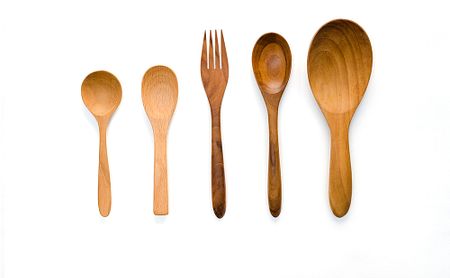Seal Spoon, Created by Students, Aims to Make Mealtime More Enjoyable

A prototype utensil called the Seal Spoon offers people with tremors due to Parkinson’s disease a less frustrating way to eat, according to a press release from Purdue University Polytechnic Institute.
The 3D-printed plastic spoon features a sliding cover that prevents both food and liquid from falling out even when the hand holding it is shaking. A $25,000 grant from the VentureWell organization will support its continued development, with a goal of making the Seal Spoon commercially available.
Three students — Zackary Roth, Brock Langley, and Jack Williams, collectively known as “The Techie Team” — designed the Seal Spoon as part of the school’s Design & Innovation Minor, which encourages students to apply design thinking methodologies to solving real-world problems by providing them with time and resources.
The group drew inspiration for their project from personal experience.
Roth and Langley both have family members with Parkinson’s, and are familiar with the challenges that disease brings to even simple tasks.
The tremors that accompany Parkinson’s complicate holding utensils like forks or spoons, which can make mealtime not only a frustrating and messy experience, but a potentially embarrassing one as well.
“Adaptive utensils,” such as weighted spoons, are one option for patients. But the students wanted another, and one that might be more versatile.
They worked on over 20 designs, 3D-printing each prototype to be tested by the people with Parkinson’s they knew.
“We had Zackary’s family try version 20 of the product and their comments were consistent with other users who had no family bias, which was surprising,” Williams said. “They were able to understand and grasp the mechanics without guidance. Moreover, the spoon was capable of holding liquid no matter the frequency of tremors and showed value to them.”
Users complained about the spoon’s texture, which is somewhat rough due to the resolution of the 3D printers available to the team. This flaw will be smoothed out over the course of development, the students said.
“Current versions are higher fidelity from the earlier generations and we are exploring different materials and printing methods for higher-end prototypes before settling on a design to injection mold,” Williams said.
Funding from VentureWell, which supports young innovators, will help The Techie Team carry out customer research, advance prototype development, and establish their intellectual property rights as they work to bring the Seal Spoon to the marketplace. The grant also provides the students access to VentureWell’s intensive Early-Stage Innovator Training Programs.
The Techie Team is one of several teams selected for the organization’s grant award. Groups were chosen based on each project’s potential to have a “significant positive social, health, or environmental impact.”
“This is exactly the outcome that we have been aiming for with the Design & Innovation Minor,” said Greg Strimel, assistant professor of technology leadership and innovation and principal investigator for the award. “The students have worked hard to move their idea beyond the boundaries of a course project toward a real innovation that can, one day, have an impact on people.”





